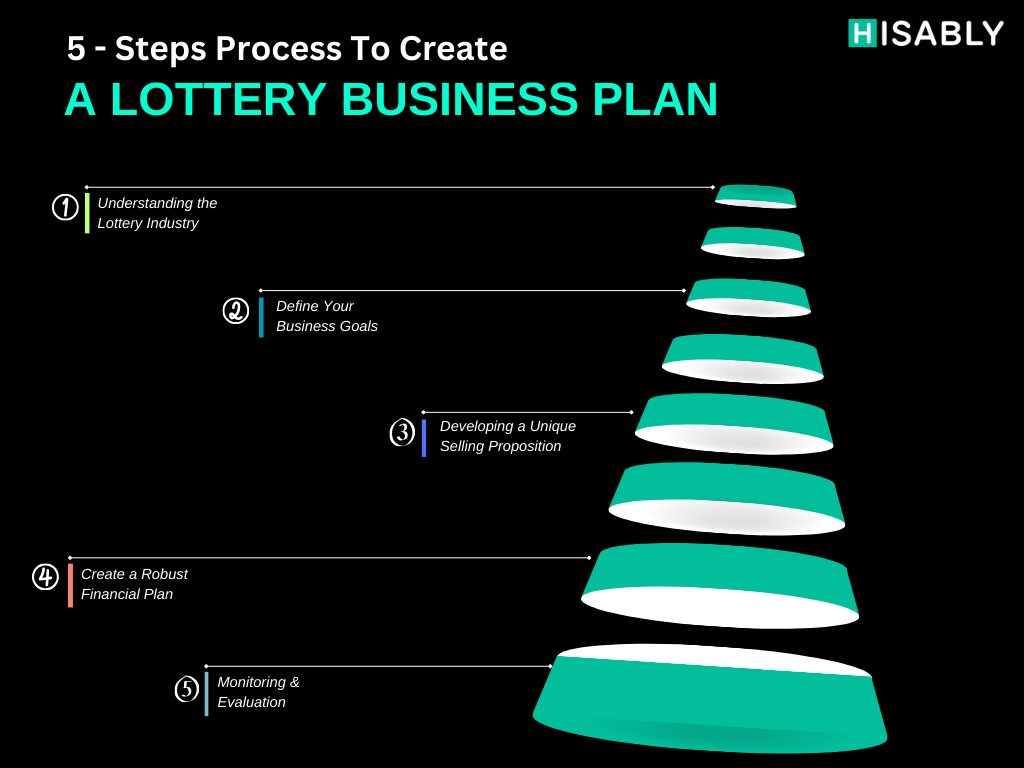The lottery industry is a global phenomenon that attracts millions of players and generates billions of dollars in revenue every year. Moreover, the online lottery sector is expanding at a fast pace, as the internet and mobile technologies enable more people to access a wide range of lottery games with ease and convenience. However, launching an online lottery business is a complex and challenging endeavor. After having to analyze the lottery market trends, it involves careful planning, substantial investment, and adherence to various legal and technical standards. For those who aspire to become online lottery operators, there are different alternatives to consider such as white label lottery business, depending on their objectives, resources, and preferences.
One of the most prevalent alternatives is to either start a Lottery business plan or employ a white-label lottery solution, which is a pre-built software platform that allows operators to create their customized lottery website or app quickly and simply. But what are the advantages and disadvantages of using a white-label lottery solution? How does it differ from other alternatives (like White Lotto), such as developing your lottery platform from the ground up, or collaborating with a turnkey system designed by a lottery platform provider? In this article, we will explore these questions and help you decide which option is best for you.
What is a White-Label Lottery Solution?
A white-label lottery solution is a software platform that offers operators a ready-made set of games, features, and management functions. An operator can customize the software with their logo and other branded elements, such as colors and typefaces, to create a unique and appealing user experience. A white-label lottery solution is typically hosted and maintained by the software provider, who also handles the licensing, payment processing, security, and customer support.
A white-label lottery solution is appealing to new operators who have limited resources and want a simple way to launch quickly. It is also convenient for existing operators who want to diversify their portfolios or enter new markets without spending too much time and money.
What are the Benefits of Using a White-Label Lottery Solution?
Some of the main benefits of using a white-label lottery solution are:
No need to acquire a gaming license. Acquiring a gaming license can be a time-consuming, expensive, and complicated process, depending on the jurisdiction and the type of lottery you want to offer. With a white-label lottery solution, you can bypass this hassle, as you are technically “sub-licensing” the license owned by the software provider. However, this also means that you are limited to operating in the jurisdictions covered by the provider’s license, and you have to comply with their rules and regulations.
How to Start your own Lottery Business for a Profitable Lottery Business?
Quick and Easy Launch
A white-label lottery solution is pre-built and ready to launch quickly. You do not need to test and debug the software before launching, as the provider has already done that for you. You can start your lottery business in days or weeks, instead of months or years. All you need to do is add your branding and marketing materials, and you are set to go.
Low Initial and Operational Costs
Developing your lottery platform from scratch can be very costly, as you have to hire developers, designers, testers, and other professionals, as well as purchase hardware, software, and licenses. With a white-label lottery solution, you can save a lot of money, as you only pay a fixed fee or a percentage of your revenue to the software provider. You also do not have to worry about the maintenance, updates, and security of the software, as the provider takes care of that for you. Read “Where to pick free lottery software providers” for more information.
What are the Drawbacks of Using a White-Label Lottery Solution?
Some of the main drawbacks of using a white-label lottery solution are:
Lack of Customization and Differentiation
A white-label lottery solution is a generic and standardized product that is shared by many other operators. This means that you have little control over the design, functionality, and features of your lottery website or app. You cannot tailor it to suit your specific needs, preferences, or target audience. You also face more competition, as your lottery website or app resembles and behaves like others in the market. You might also need to design your lottery to work with some of the best online lottery management software out there, such as Hisably!
Dependence on the Software Provider
Using a white-label lottery solution means that you are depending on the software provider for the quality, performance, and reliability of your lottery website or app. If the provider encounters any technical issues, glitches, or downtime, your business will be impacted as well. You also have to follow the terms and conditions of the provider, and you may have limited access to the data and analytics of your lottery website or app.
Limited Scalability and Flexibility
A white-label lottery solution is a fixed and rigid product that may not be able to adjust to the changing needs and demands of your business. You may not be able to add new games, features, or integrations, or modify existing ones, without the approval and assistance of the software provider. You may also face challenges in expanding to new markets or jurisdictions, as the software provider may not have the license or the capability to support them. Well, it is a bit difficult to determine how to buy the best lottery software for your business!
What are the Alternatives to Using a White-Label Lottery Solution?
If you are not satisfied with the pros and cons of using a white-label lottery solution, you may want to consider other options, such as:
Creating a lottery platform from the ground up. This option allows you to have the utmost control and flexibility over your lottery website or app. You can shape and build it according to your vision, goals, and specifications. You can also select the games, features, and integrations that you want to offer, and customize them to your target audience.
However, this option also demands the most time, money, and expertise. You have to secure your gaming license, recruit your team, and oversee your infrastructure. You also have to cope with the challenges and risks of developing and maintaining a sophisticated software system.
Partnering with a turnkey system developed by a lottery platform provider. This option is a compromise between using a white-label lottery solution and creating your lottery platform from the ground up. A turnkey system is a ready-to-use software platform that is developed by a lottery platform provider, who also offers customization and support services. They also need to resolve issues in setting up lottery throughout your business operations!
You can choose from a variety of games, features, and integrations that the provider offers, and ask for additional or modified ones if needed. You can also add your own branding and marketing materials to the software. However, this option still requires some investment and involvement from your side. You may have to secure your gaming license or pay a higher fee to the provider for using theirs. You may also have to share some of your revenue or data with the provider or follow their rules and regulations.
Conclusion
If you are thinking of starting an online lottery business, you will face many choices and challenges along the way. One of the key choices is the type of lottery solution that you will use for your business. Many online lottery entrepreneurs opt for a white-label lottery solution, which is a ready-made and easy-to-use option that allows you to launch your business in no time.
However, a white-label solution may not be the best fit for your business, as it also comes with some restrictions and disadvantages. You may want to consider other alternatives, such as creating your lottery platform from the ground up or partnering with a turnkey system offered by a lottery platform provider, depending on your vision, budget, and needs. The optimal choice is the one that aligns with your goals and expectations and enables you to reach your desired results.




